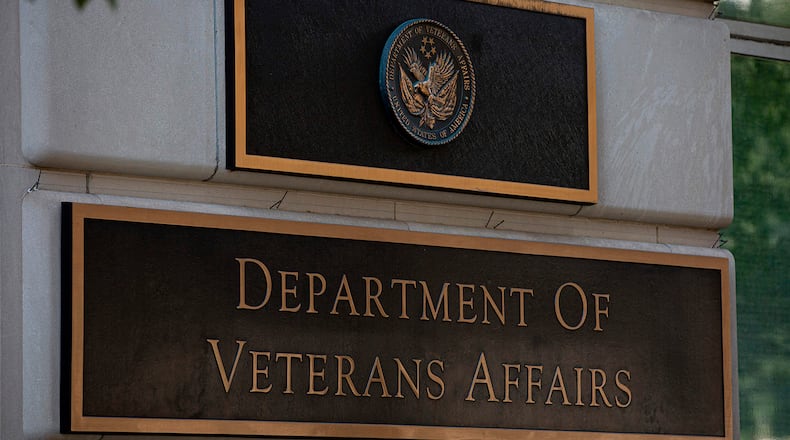VA Augusta Health Care System leaders fostered a “culture of fear” with a “threatening and abusive communication style” and allegedly retaliated against employees who shared concerns, according to an Office of Inspector General draft report viewed by The Atlanta Journal-Constitution.
The report also cites staffing shortages, medical supply problems that affected the Augusta system’s “ability to provide safe patient care” and “inconsistent and low compliance rates for communication of test results to patients.”
The preliminary findings, which are based on a Sept. 24-26 routine inspection of the Augusta system and a survey of its employees, appear to illuminate why the Veterans Affairs Department changed top leaders there last month.
The overhaul in Augusta is unfolding amid a major upheaval in the VA, the federal agency responsible for caring for the nation’s millions of military veterans. Last month, VA Secretary Doug Collins announced plans to shrink the department’s workforce by 15%, or about 72,000 workers.
The VA Medical Center in Augusta is among the lowest-performing VA hospitals in the nation, according to ratings published by the U.S. Centers for Medicare and Medicaid Services. As of Feb. 19, it had an overall rating of two out of five stars, which are based in part on patient care, safety and mortality. Most of the more than 100 other VA hospitals that received ratings during the same time frame got higher scores.
Last month, the agency reassigned Augusta VA director Robin Jackson and a fellow top official, Kimberly Booker, citing a review. Oscar Rodriguez, who recently served as the VA’s acting director in Columbia, South Carolina, became Augusta’s acting director.
David Walker, who directs the VA’s Southeast Network, outlined the changes in an email to employees last month. In it, he acknowledged “questions regarding organizational health and workplace culture” and thanked the Office of Inspector General and others for “critically important feedback.”
The OIG’s draft report does not identify officials by name. It says “concerning behavior and communication problems among facility leaders had created a toxic workplace.” The report also recommends that the VA determine whether top officials in the VA’s Southeast Network office were aware of but did not address the Augusta leaders’ “unprofessional behavior and communication.”
Jackson and Booker did not respond to requests for comment.
A spokesperson for Walker’s office said the agency, under Collins, is “challenging the status quo to find new and better ways of helping VA beneficiaries.”
“To that end, the department announced leadership changes at the Augusta Veterans Affairs Medical Center,” said Sharonda Pearson, a spokesperson for the VA’s Southeast Network in Duluth.
Pearson added that Jackson and Booker have been detailed to the Veterans Integrated Service Network in Atlanta. That office oversees eight major VA medical facilities in Alabama, Georgia and South Carolina.
“These reassignments are temporary while (the) VA conducts an investigation of the leadership in Augusta,” Pearson said. “The Augusta VAMC remains committed to delivering the highest-quality care and service to veterans while fostering a positive and supportive work environment for its employees.”
OIG spokesperson Amanda Simmons said her office “does not comment on draft reports or the internal review process within VA.” She added that the report will be published “when routine processes for review, comment, quality assurance and final editing have been completed.”
In January, President Donald Trump fired VA Inspector General Michael Missal. Missal and seven other inspectors general from different agencies are suing in federal court, asking a judge to declare their firings unlawful and to order their reinstatement.
The AJC also viewed VA officials’ responses to the OIG’s draft report. In a March 24 memo, the Augusta VA said officials there had completed training focused on “improved communication and healthy relationships for the entire organization.” Rodriguez added in the memo that he concurred with a recommendation in the OIG’s report to “develop action plans to ensure providers communicate test results to patients” in a timely way.
In a separate document, Veterans Health Administration officials wrote the OIG “did not find or report any instance where safe patient care was not provided.” They also responded to the allegations of retaliation, saying “a review of all investigations chartered by the director over the past three years revealed no staff was removed from their position, reassigned to another facility” or investigated for reporting concerns.
The Augusta system consists of two hospital sites in Augusta and outpatient clinics in Athens, Statesboro and Aiken, South Carolina, according to the VA’s website. It employs more than 2,700 workers who serve about 50,000 veterans each year across 36 counties in eastern Georgia and western South Carolina.
Some of the problems the OIG identified in Augusta were not new. In 2018, the OIG inspected the VA Medical Center in Augusta in response to anonymous allegations of “multiple quality of care and leadership failures.” The report the OIG published the following year concluded “while many of the allegations were largely unfounded, they nevertheless exposed a facility challenged by organizational division.”
Clinical managers, according to that report, said they “did not feel heard or supported by members of the leadership team, and failures to adequately address a range of long-term problems resulted in situations that angered staff, jeopardized relationships and partnerships, and placed patients at risk.”
The 2019 report also highlighted that the Augusta VA Medical Center had five acting or permanent directors in the previous five years.
In April of 2022, VA nurses in Augusta demonstrated, alleging “disrespect and bullying that is creating a hostile work environment and staffing crisis,” National Nurses United, a union representing VA workers, said in a news release at the time.
About the Author
Keep Reading
The Latest
Featured



